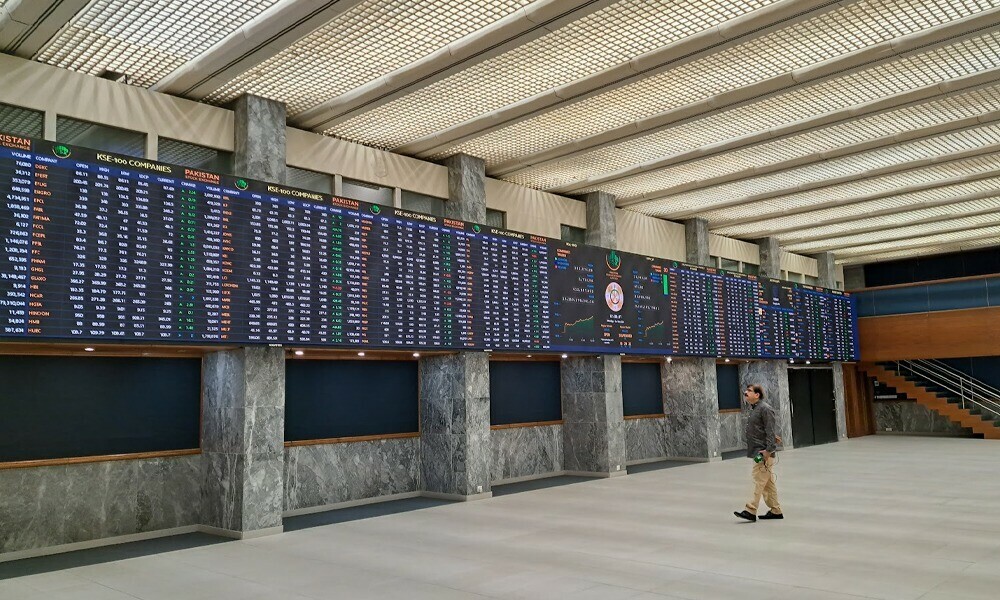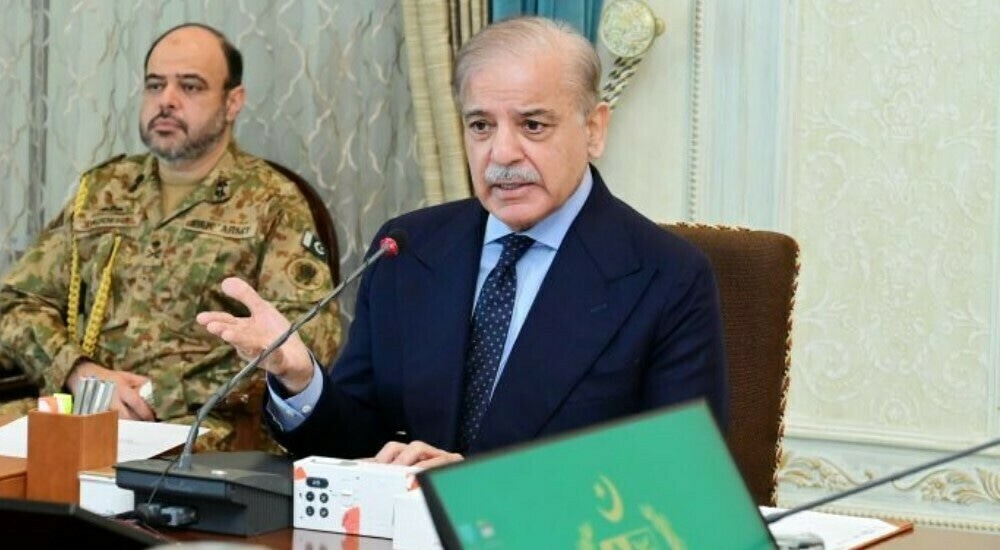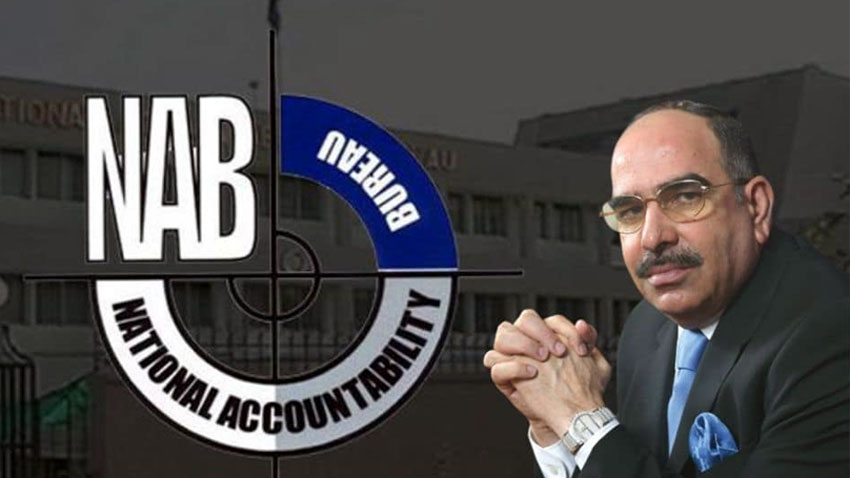PTBP Web Desk
The Pakistan Stock Exchange (PSX) witnessed a powerful rebound on Tuesday, with the benchmark KSE-100 Index climbing nearly 1,500 points during intra-day trading. This sharp recovery followed a major dip just a day earlier when the index lost over 800 points. Investors expressed renewed confidence after Prime Minister Shehbaz Sharif announced successful negotiations with the International Monetary Fund (IMF) over Pakistan’s forthcoming federal budget.
At 2:15 PM on Tuesday, the KSE-100 Index stood at 120,366.28 points, showing a remarkable gain of 1,488.48 points, or 1.25%. This sharp upward movement reflected positive sentiment across various key sectors, especially those heavily weighted in the index.
Buying pressure was visible in multiple major sectors, including cement, commercial banking, oil and gas exploration, oil marketing companies (OMCs), and power generation. Prominent index-heavy stocks such as HUBCO, OGDC, PPL, SNGPL, SSGC, MCB, MEBL, and UBL all traded in the green, contributing significantly to the upward momentum.
The sudden market optimism is closely linked to a major announcement made by Prime Minister Shehbaz Sharif on Monday. He confirmed that discussions with the IMF regarding the upcoming budget had concluded successfully, which many analysts interpret as a green signal for a new phase of economic growth and financial stability.
Sharif emphasized that the government’s priority had now shifted from economic stabilization to sustained development, suggesting a more reform-driven and investment-oriented approach in the coming months. This clarity in economic direction appears to have reassured investors.
The surge comes just one day after the PSX experienced a volatile session on Monday. Early gains in that session were wiped out by late-session profit-taking and selling pressure, ultimately resulting in the KSE-100 Index closing 813.29 points down — a 0.68% drop that brought the index to 118,878 points.
Such volatility is not uncommon in the days leading up to a federal budget, particularly when negotiations with global lenders like the IMF are involved. However, the dramatic recovery on Tuesday reflects renewed hope that Pakistan is back on the path to economic stability, at least in the short term.
While Pakistan’s stock market recovered locally, global markets presented a more cautious outlook. Asian stock markets edged higher, but concerns over global trade tensions remained prevalent.
US manufacturing data released Monday showed the sector contracted for the third consecutive month in May. Supply chain delays — the worst in nearly three years — and renewed tariff uncertainties added to investor caution globally.
In a related development, US President Donald Trump and Chinese President Xi Jinping are expected to engage in a conversation this week, according to White House Press Secretary Karoline Leavitt. The call is critical in light of Trump’s recent accusations that China violated trade rollback agreements.
Investors globally are watching this development closely, as its outcome could either ease or escalate the ongoing trade war. A deterioration in US-China trade relations could once again hit global stocks and currencies.
Despite this uncertainty, MSCI’s index of Asia-Pacific shares outside Japan rose 0.6%, while Japan’s Nikkei increased by 0.66%. In Europe, EUROSTOXX 50 futures were up 0.28%, and FTSE futures added 0.15%.
Domestically, the successful IMF negotiations have major implications for Pakistan’s budget strategy. The 2024-25 federal budget, scheduled for presentation in the National Assembly on June 10, is expected to focus on fiscal consolidation, tax reforms, and targeted subsidies.
The Public Sector Development Programme (PSDP), which was originally allocated Rs1.4 trillion including Public-Private Partnership projects, has now been revised down twice — first to Rs1.25 trillion and later to Rs1.096 trillion. This reflects the government’s intention to manage expenditures more prudently while still investing in growth-driving infrastructure.
According to insiders, Finance Minister Muhammad Aurangzeb is working on a budget that is closely aligned with IMF guidelines. The delay in the budget — initially planned for June 2 — was primarily due to back-and-forth discussions with the IMF regarding tax relief and revenue targets.
This alignment with the IMF is crucial for unlocking the next tranche of financial assistance and restoring investor confidence, especially at a time when foreign direct investment and exports are under pressure.




